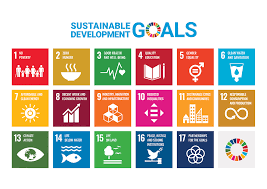The Various Types of Sustainable Development
Sustainable development is a crucial concept that aims to meet the needs of the present without compromising the ability of future generations to meet their own needs. There are several types of sustainable development strategies that focus on different aspects of environmental, social, and economic well-being. Here are some key types:
Environmental Sustainability
Environmental sustainability focuses on preserving natural resources and ecosystems for future generations. This type of sustainable development involves practices such as reducing pollution, conserving biodiversity, and promoting renewable energy sources.
Social Sustainability
Social sustainability aims to create inclusive and equitable societies where all individuals have access to basic services, education, healthcare, and opportunities for personal growth. It involves addressing issues such as poverty, inequality, and social justice.
Economic Sustainability
Economic sustainability focuses on promoting long-term economic growth that benefits society as a whole while minimising negative impacts on the environment. This type of sustainable development involves fostering innovation, creating green jobs, and supporting sustainable business practices.
Cultural Sustainability
Cultural sustainability emphasises the preservation of cultural heritage and traditions within communities. It involves promoting diversity, cultural exchange, and respect for different ways of life to ensure that cultural identities thrive alongside modern developments.
Urban Sustainability
Urban sustainability addresses the challenges faced by cities in terms of population growth, infrastructure development, resource management, and quality of life for residents. It involves creating smart cities, promoting public transportation, and designing green spaces to enhance urban livability.
In conclusion, sustainable development encompasses a variety of approaches that work together to create a more balanced and resilient world for current and future generations. By incorporating these different types of sustainable development into our policies and practices, we can build a more sustainable future for all.
Top 5 Sustainable Development Strategies: From Renewable Energy to Water Conservation
Renewable Energy
Renewable energy is a key component of sustainable development, offering a clean and environmentally friendly alternative to traditional fossil fuels. By harnessing natural resources such as sunlight, wind, and water, renewable energy sources provide a reliable and sustainable way to meet our energy needs while reducing greenhouse gas emissions and mitigating climate change. Investing in renewable energy not only helps to protect the planet for future generations but also creates new job opportunities and stimulates economic growth in the burgeoning green energy sector.
Waste Management
Effective waste management is a crucial aspect of sustainable development. By implementing proper waste management practices, we can reduce the environmental impact of our waste, conserve resources, and minimise pollution. Strategies such as recycling, composting, and waste-to-energy technologies play a significant role in managing waste sustainably. Through responsible waste management, we can move towards a more circular economy where materials are reused, repurposed, or recycled, ultimately contributing to a cleaner and healthier environment for future generations.
Sustainable Agriculture
Sustainable agriculture is a vital component of environmental sustainability, focusing on practices that promote the long-term health of the land while ensuring food security for future generations. By implementing techniques such as crop rotation, organic farming, and water conservation, sustainable agriculture aims to minimise the negative impact of farming on ecosystems and biodiversity. This approach not only supports the well-being of farmers and rural communities but also contributes to global efforts towards a more sustainable and resilient food system.
Green Infrastructure
Green infrastructure is a key aspect of sustainable development that focuses on incorporating natural elements into urban environments to enhance environmental quality and human well-being. By integrating features such as parks, green roofs, and permeable surfaces, green infrastructure helps to mitigate the impacts of climate change, reduce pollution, and improve air and water quality. This approach not only promotes biodiversity but also creates spaces for recreation and relaxation, ultimately contributing to healthier and more resilient communities.
Water Conservation
Water conservation is a crucial aspect of sustainable development that focuses on the responsible use and preservation of this vital resource. By adopting practices such as reducing water wastage, implementing efficient irrigation techniques, and promoting water-saving technologies, we can ensure the availability of clean water for both present and future generations. Water conservation not only helps protect ecosystems and biodiversity but also plays a significant role in mitigating the impacts of climate change. Embracing water conservation as part of our sustainable development efforts is essential for building a more resilient and environmentally conscious society.
